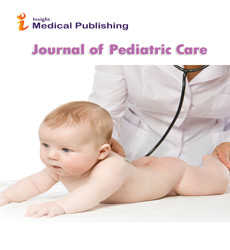Abstract
Malnutrition, Mortality and Breastfeeding Practices in the Eastern Mediterranean Region: A Review of the Current Status
Background: Countries in the Eastern Mediterranean region (EMR) are facing many challenges that hinder progress in reduction of mortality rates (MRs) and nutritional status of children under-five years of age (CU5). Hence there is a need to identify breastfeeding practices that can influence malnutrition and MRs in the region.
Aim: To analyze regional data of malnutrition, mortality and breastfeeding practices in mothers and CU5 in the EMR countries.
Methods: Data from regional surveys of WHO and UNICEF for nutritional status and MRs in the EMR countries were analyzed in total and by income group and correlated to breastfeeding practices including timely first suckle (TFS), exclusive breastfeeding (EBF), breastfeeding rates at 12 (BR12) and 24 months (BR24) and percent designated Baby-friendly hospitals (DBFH). MRs included neonatal mortality rates (NMR), infant mortality rates (IMR), under-five mortality rates (U5MR), maternal mortality ratio (MMR). Selected indicators for development included illiteracy rates and total fertility rates (TFR).
Results: Practices of early initiation (TFS), EBF, and continuity of breastfeeding are low in the region. MRs correlated with percent DBFH, TFS, EBF. Also BF12 and BF24 months correlated with stunting, wasting in the CU5, U5MR and overweight and obesity in adults. MRs correlated highly with stunting and wasting and poorly with overweight or obesity in CU5. Other variables as illiteracy, TFR, obesity and overweight in adults correlated significantly with MRs and with breastfeeding duration. At country level the low trends of shortened breastfeeding duration were associated with the high MRs and malnutrition rates.
Conclusion: Suboptimal early feeding practices, low EBF and declines in breastfeeding duration impact child growth and survival and are associated with high stunting, wasting, overweight and mortality in CU5. Indices of development as improving literacy, birth spacing and can also help improve survival of children and mothers in the region.
Author(s):
Ayoub Al-Jawaldeh and AzzaAbul-Fadl
Abstract | Full-Text | PDF
Share this

Google scholar citation report
Citations : 130
Journal of Pediatric Care received 130 citations as per google scholar report
Abstracted/Indexed in
- Google Scholar
- China National Knowledge Infrastructure (CNKI)
- Cosmos IF
- WorldCat
- Geneva Foundation for Medical Education and Research
- Secret Search Engine Labs
Open Access Journals
- Aquaculture & Veterinary Science
- Chemistry & Chemical Sciences
- Clinical Sciences
- Engineering
- General Science
- Genetics & Molecular Biology
- Health Care & Nursing
- Immunology & Microbiology
- Materials Science
- Mathematics & Physics
- Medical Sciences
- Neurology & Psychiatry
- Oncology & Cancer Science
- Pharmaceutical Sciences

